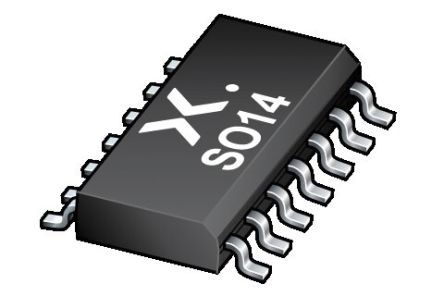
Brand
- Rhodes + Scholes 79.671
- Maroxe 6.127
- Portwest 5.977
- M&S Collection 3.316
- Velux 3.152
- MTP Products 3.091
- Slingsby 2.878
- Gildan 2.630
- EUROKRAFTpro 2.556
- Watco 2.534
- Ideal Lux Lighting 2.361
- Sealey 2.153
- Discount Dealers 1.968
- TIMCO 1.939
- Gemini Interiors 1.726
- Sandvik Coromant 1.707
- Unbeatable Bargains 1.655
- onsemi 1.647
- Ace & K 1.639
- Merkel Designers 1.613
- R and M Furniture 1.595
- IWTBAG 1.594
- Qualfast 1.574
- Callaway 1.542
- Direct Imports 1.532
- Sid & Sam 1.529
- Design Hut 1.528
- Decor Base 1.517
- Style and Chic 1.478
- Lyle & Scott 1.468
- Tyrell & Tyrell 1.468
- Brittle & Co 1.467
- Kennedy 1.451
- The Home Maker 1.435
- Millennium Furniture 1.422
- AWDis Just Hoods 1.404
- Charlotte Dunes 1.401
- Routledge 1.387
- All Things Good 1.386
- Lowe 1.385
- Casper Homes 1.360
- Texas Instruments 1.296
- Molan 1.293
- Savings Store 1.277
- Merlin Deals 1.222
- Lighthouse 1.204
- TaylorMade 1.179
- Brixworth 1.176
- Build Your Brand 1.154
- Nike 1.106
- BPLAS 1.094
- Ping 1.091
- Regatta Professional 1.080
- Perkupyourday 995
- Genware 982
- 3M 952
- Spiro 941
- Faithfull 936
- Brook Taverner 918
- YouGarden 901
- Mizuno 895
- Mobility Smart 884
- Liverpool FC 851
- B&C 842
- Selfmade 824
- Lee & Plumpton 821
- Life Essentials 820
- Outsunny 795
- Winsor & Newton 783
- Supertouch 761
- Amtech 756
- Tommy Hilfiger 755
- Blaklader 754
- Dams 741
- Eurocell 738
- PiXAPRO 737
- Ergomat 731
- Neo 728
- Elite Lockers 721
- Sia Abrasives 718
- MonsterShop 713
- Moon Magic 676
- Galvin and Galloway 675
- CASALA 662
- Belveto 661
- Homcom 653
- Titleist 647
- Zoro Select 645
- Dams MTO 642
- Shire 639
- AWDis Just Cool 635
- Matlock 630
- Sherwood 618
- Russell 616
- Salomon 611
- ECCO 606
- ORN 605
- Faro Lighting 603
- Microchip 603
- EUROKRAFTbasic 596
Colour
- Black 22.849
- White 11.712
- Grey 5.921
- Blue 5.199
- Red 4.942
- Brown 4.780
- Green 3.532
- Navy 3.509
- Yellow 3.268
- Noir 3.051
Size
Gender
Merchant
- Zoro UK Limited 202.812
- Home Done 32.927
- Maroxe 20.445
- Marks & Spencer UK 8.686
- Glisshop uk 8.443
- RS Components UK 7.124
- Belveto 6.548
- Workwear Supermarket 6.210
- QD Stores 5.203
- MyTrendyPhone.co.uk 4.976
- Cowling & Wilcox 4.717
- Suit Direct 4.594
- Building Plastics Online 4.422
- Your Stylish Home 4.221
- Click Golf 4.200
- Golf Gear Direct 3.777
- Kick Game 3.632
- AndLight.co.uk 3.231
- Orthopeca UK 3.180
- Cherry Lane 2.986
- Alensa.co.uk 2.830
- Mobility Smart 2.086
- Selfmade.com 1.962
- Routledge 1.882
- Kids around 1.880
- Acorn Fire & Security 1.812
- Craigmore UK 1.655
- I want to buy a gift 1.594
- Lyle & Scott 1.434
- Essential Photo 1.275
- Home Living Luxury 1.223
- Plusshop UK [OLD] 1.202
- Seal Medical 1.024
- Perk Up Your Day 995
- Lighthouse Clothing 949
- YouGarden 901
- Liverpool FC 851
- My-Deco-Shop 832
- Rhino Stationery (Comlyn CSS) 736
- K4G.COM 727
- Moon Magic 676
- Golden Valley Plants 640
- gb.ecco.com 624
- uk.plusshop.com 600
- Posted Protein 545
- Lime Lace 510
- Pureshoes 493
- Tosoni Selleria 481
- Retro Star 461
- AWD IT 460
Price (EUR)
- <5 25.282
- 5 - 10 18.906
- 10 - 20 30.587
- 20 - 50 65.757
- 50 - 100 58.175
- 100 - 200 39.564
- 200 - 500 47.840
- >500 103.462



















